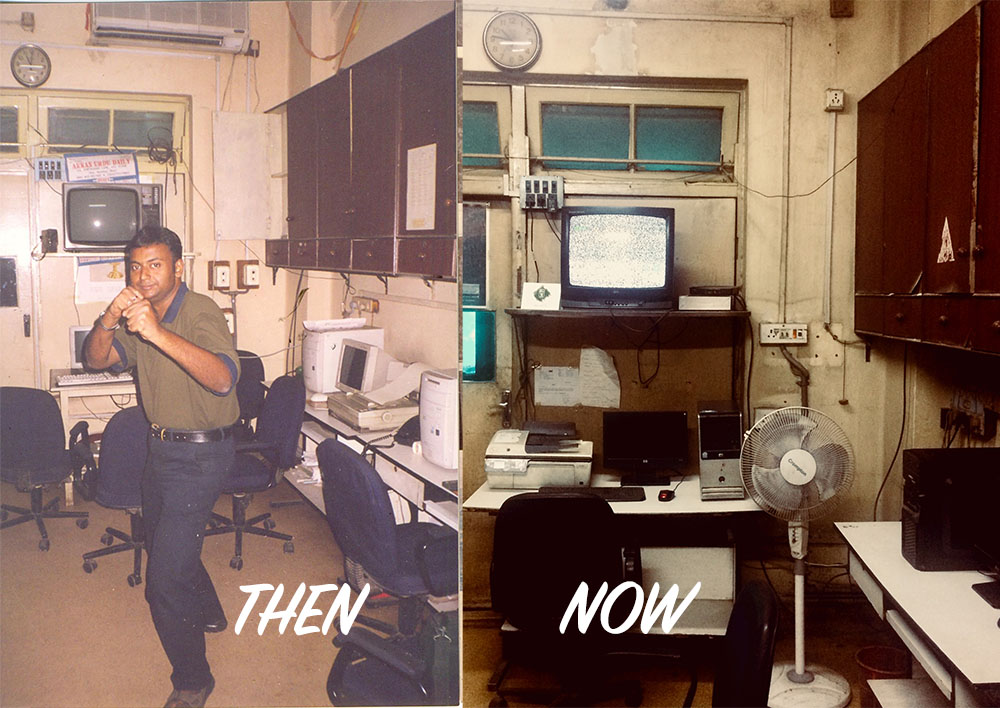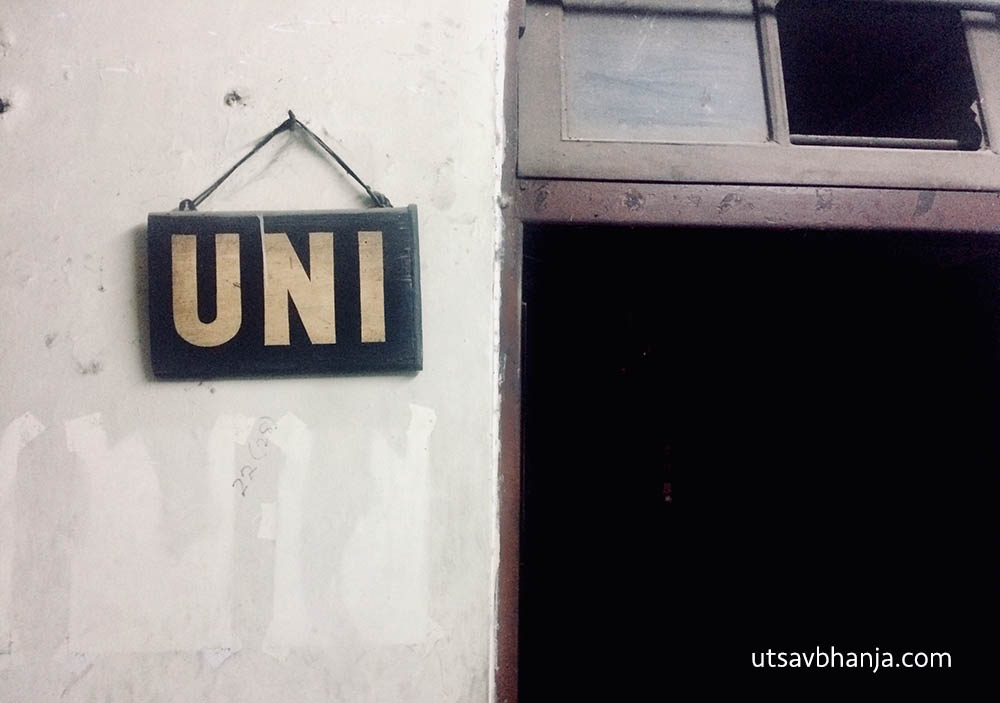“You are listening to 107.8 Power FM, main apka host aur dost Utsav…” and my eyes opened to a loud rumbling. Monsoons were bad there. I looked at my music system with drowsy eyes. The room was clammy with wet clothes which my mother had kept under the fan to dry indoors. I could see some loose ends of threads on my school uniform hanging out, dripping water. An old bookshelf, bent down in the middle, too guzzled to swallow anymore. The rumbling of the thunder continued. No one was at home. I sat on my father’s bed for a while. He had stopped coming home by then. It had been more than a month that he last returned home from work like a visitor, only to make us realise later that he would soon vanish into the rains.
I grabbed another look of my music system, the only thing my father left me for inheritance. It was a BPL cassette player with two chambers, an inbuilt mic and a radio. Back then, CDs were still science fiction for people like us who could not afford CD players. So I tuned the radio to Power FM, inserted a blank Meltrack cassette and started ‘jockeying’. Recorded my own show and played it back and forth twice or thrice, as if I had a real audience out there listening to me. It was fun.
I always wondered, how newspapers and radio stations operated. My father used to read around three newspapers everyday. I was never a reader but was always intrigued by the way they designed the pages, the photos, captions, etc. I had seen my dad edit and compile books before they were sent out to the press for the final copies. My mother was working as a news programmer for a leading television news agency in Kolkata at that time. I had been to several studio shoots with her. It appeared like a game to me. A bunch of people running around, shuffling papers, shouting from one end to the other and a giant clock ticking away their peace of mind. All of this, only to deliver a piece of information to the mass on time. I never understood how, but I just loved imagining myself doing the same, at times dramatising the scenarios in my mind.
Years later, computers happened to me; like love happens! A few more years later (like Ekta Kapoor’s TV serials where they keep skipping on time to fast forward the story when it stops making sense), I started writing online; started an online radio service, which later got shut due to lack of proper resources; or should I say ‘money’. Much later, I founded a company which I still run; worked with some brilliant minds. During one such project shoot, an official crisis occurred where we needed a contract print in the middle of nowhere. Well technically, we were in the heart of the city, looking for a cyber cafe, on a Sunday. Finally Arindam da, out of his overwhelmingly impressive brain, brought out an idea. We drove to the only place in central Kolkata, which had the probability to remain open even on a non-working day – the office of United News of India; a multilingual news agency operating in the country since 1961. Arindam da used to be a journalist with the agency long back, but his roots were pretty deep to have actually let us enter the office that day by an ex-colleague who happened to recognise him.
Alas, the printer was out of order. Wait what? UNI, one of India’s biggest news agency did not have a working printer? I did not even have options for an answer to that scenario. I entered the other room. Old files stacked up, broken desks, CRT monitors, rusty handrails and a nameplate covered with dust on the outside. My preliminary observations did not impress me. I thought, computers and new media is smarter, classier and neat. Then I saw something.
I watched closely and found scribbles on the desks. Some of the old files had handwritten captions on them. Then I saw a clock; a decently giant one. I suddenly started thinking about the people who might have been there, working for years, running around and shuffling papers to deliver the right news on time. “The place must have been so active at some point of time”, I thought. Like a film transition, I saw myself standing in the middle of the office full of journalists and editors, working in a hyper-lapse mode. The sepia tone had clenched my imagination by then. What was he thinking when he scribbled his desk? Who wrote those captions? Does the clock ever stop? Who runs this place? The child inside me started bargaining for answers, imagining the game once again. I looked at an old television set and instantly recognised it, for I had seen it in an old picture of Arindam da.

The place had a whole world of memories which I would never know but could relate to. I could see the shelves full of stories – of human life, of suffering and celebrations. I could imagine a day in someone’s life from the perspective of a copywriter or columnist who must have lived so many lives chasing and completing stories of others. I could imagine the photographer who had spent his previous night in the dark room, bringing his art to light; yet waiting for the editor to put the final seal of appreciation or rejection on his already-perfect piece of art.
I realised, on that monsoon morning, the kid had to wake up to a thunder roll. He had to stare at the newspapers and speakers. He had to do all these things to become a part of it in the years to come, to find the stories behind stories. I also understood, nothing has changed; rather we have chosen euphemism to confuse people; to hide our interests and to play safe. So did I become a radio jockey after all? Did I become a journalist or at least a story teller? Perhaps, in retrospect.
